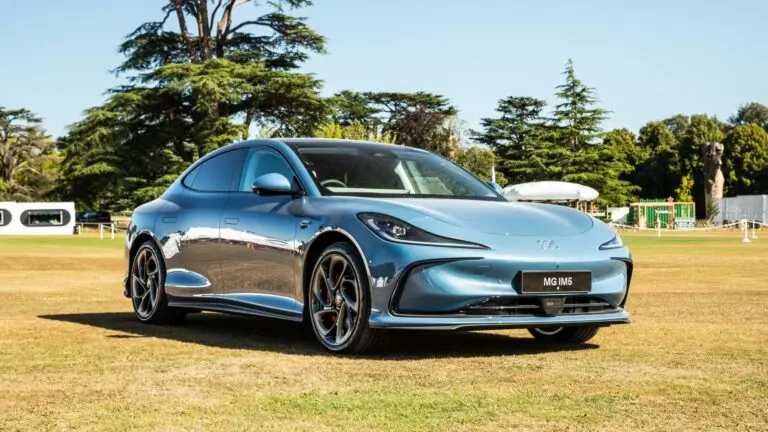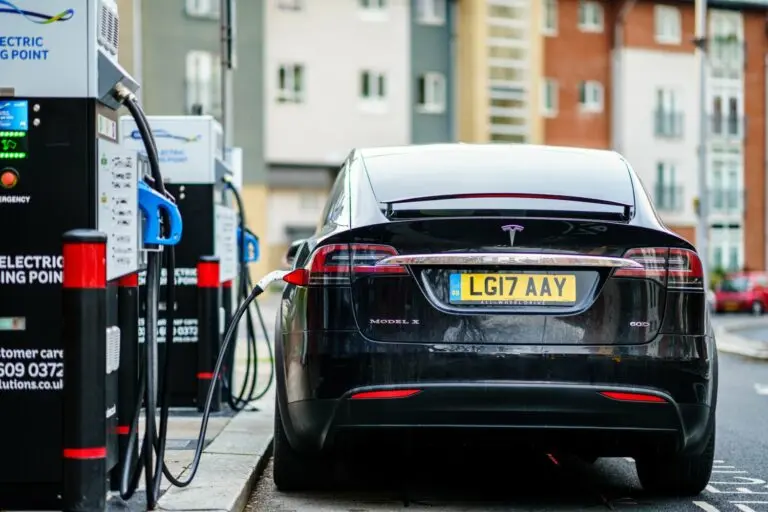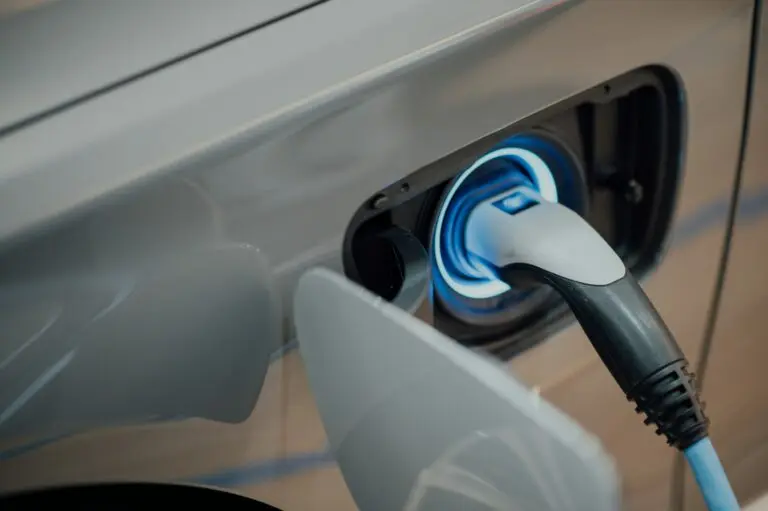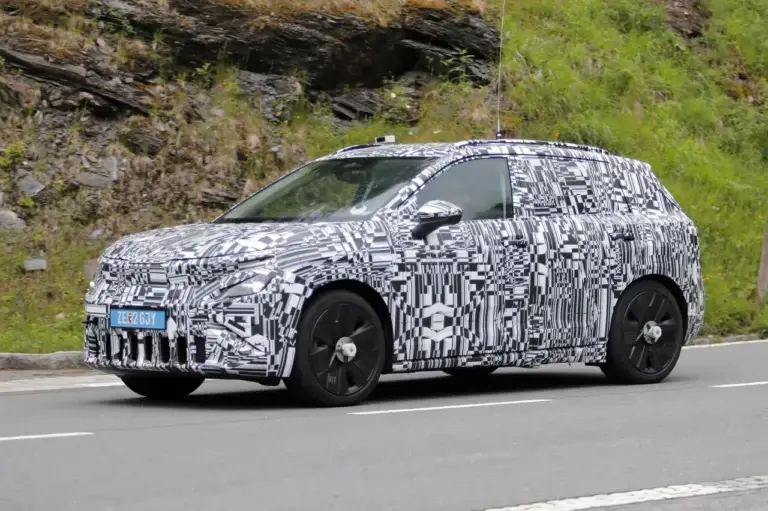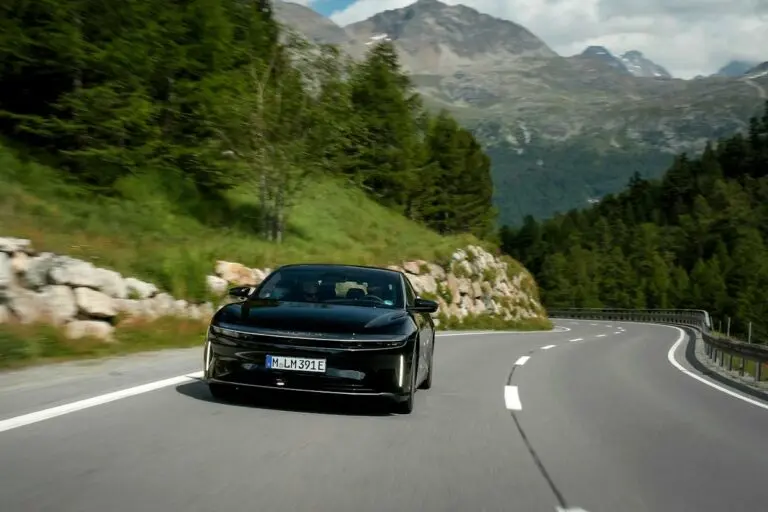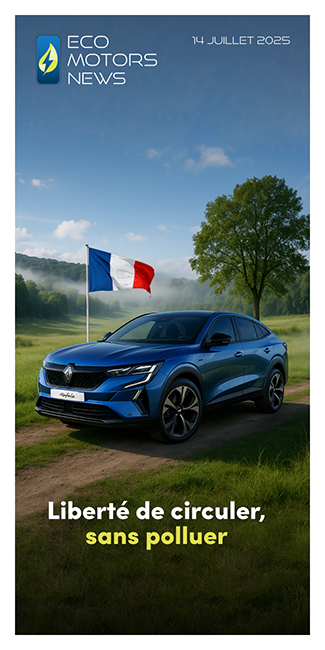Škoda is refining its ambitions in the consumer electric market with a new model, the Epiq, expected for the end of 2025. Presented as a concept in 2024, this « mini SUV » has already been seen during road tests in Spain, near the production plant, at the beginning of July 2025. With a length of 4.10 m, it is positioned in the affordable compact SUV segment, also coveted by Renault with its R4 E-Tech, Citroën with the ë-C3, and Volkswagen with the ID.2. Spotted recently in Spain under camouflage, the Škoda Epiq is now entering its active phase of road tests.
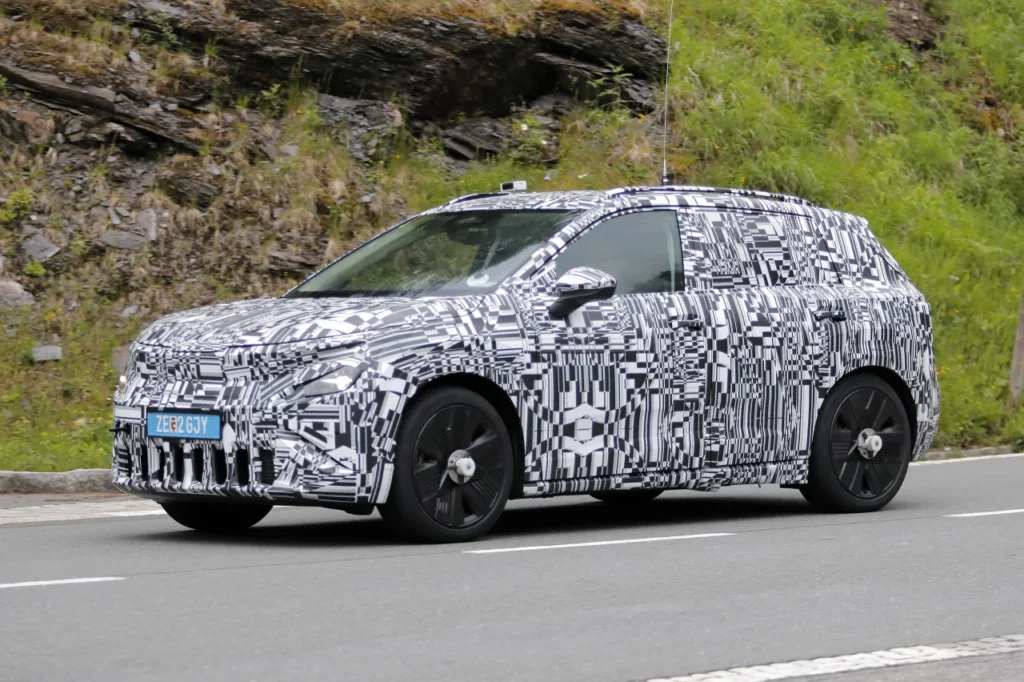
Low prices, high ambitions
Škoda has promised that the Epiq will target a starting price of around €25,000 , excluding the environmental bonus. This psychological threshold is the one that all manufacturers are targeting in order to democratise electric cars without ruining motorists. To achieve this, some concessions will no doubt have to be made on the equipment of entry-level versions. However, the manufacturer insists that this is a practical, connected family car, not a low-cost product.
Solid design for a new Škoda era
The design of the Škoda Epiq does not go unnoticed, even under camouflage. It inaugurates the new ‘Modern Solid’ design language, already visible on the brand’s latest concepts. It has a compact, almost muscular silhouette, with a flat bonnet, taut lines, T-shaped headlamps and a clearly visible ŠKODA name at the rear, in place of the traditional logo. Even under canvas, the Epiq clearly displays its positioning: a robust, practical yet modern urban SUV.
Up to 400 km range and two-way charging
Although Škoda has not yet released the full technical specification, the Epiq concept unveiled in spring 2024 claimed a range in excess of 400 km WLTP. A credible figure, even if the first marketed versions could offer a slightly more modest range depending on the battery chosen.
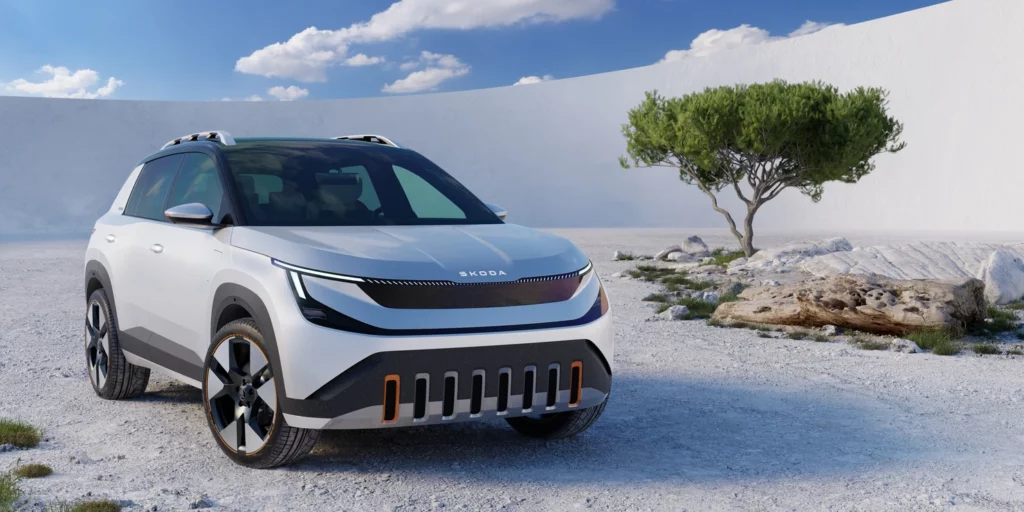
Bidirectional charging (V2L or V2G) will also be on the programme. Still a rare feature in this price range, it can be used to power appliances or even feed electricity back into the home network, appealing to users concerned about their energy footprint.
An SUV designed for Europe and made in Spain
The Epiq will not just be a concept: it is based on the new dedicated MEB Entry platform, designed for the Volkswagen Group’s entry-level electric vehicles. Unlike other Škodas produced in the Czech Republic, this model will be assembled in Pamplona, Spain, alongside the Volkswagen ID.2 and Cupra Raval. This strategic choice aims to contain costs while ensuring 100% European production. It remains to be seen how quality will be affected by this change of plant and the reduction in costs.
Uncluttered interior, bordering on the simplistic
On board, Škoda’s Epiq concept relies mainly on a large central screen. This is in line with the VAG group’s approach with Audi and Volkswagen: a minimum of physical buttons for essential functions, and recycled materials such as plastic used for the dashboard and centre console. A futuristic style that may confuse some drivers.
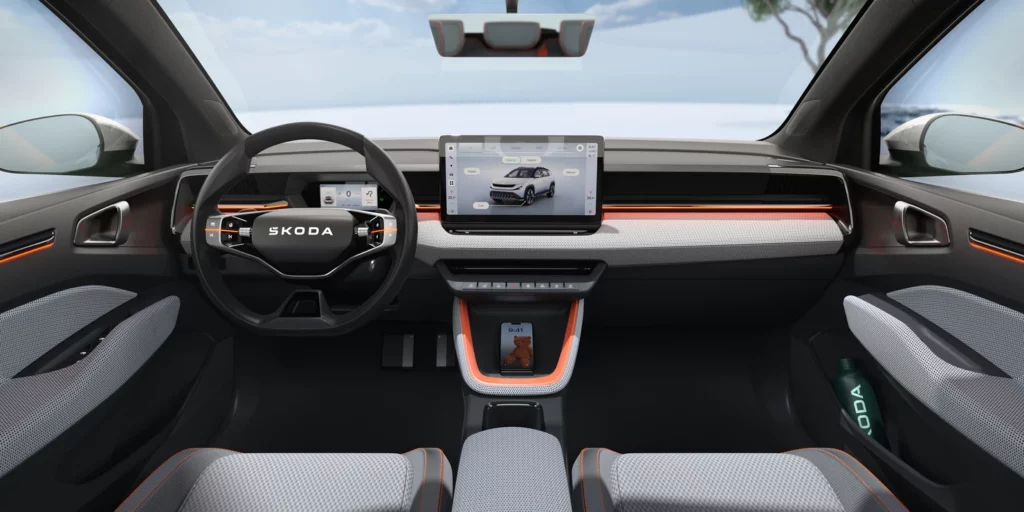
In terms of load capacity, Škoda has announced a boot capacity of 490 litres, which is surprisingly generous for a city car, making it particularly attractive to young families.
A key model for Škoda and the VAG Group
The stakes are high for the Czech brand. The Epiq is set to become one of the pillars of Škoda’s electric range, with a stated target of 70% electric sales in Europe by 2030. More broadly, this compact SUV should enable the Volkswagen group to catch up in the affordable electric segment, in the face of the rise of Chinese offerings, as well as those from Renault, Fiat and Citroën.
With this Škoda Epiq, the Czech brand is not just offering another compact SUV. It is a strategic model, a decisive turning point in the electrification of their range. Škoda is moving forward in a field pioneered by Renault (Dacia) in Europe: a reasonable price, credible range, European manufacturing and modern design. Pending its official unveiling at the end of 2025, this small electric SUV promises to be a serious competitor to the Dacia Spring and the latest Renault 4 E-Tech.


